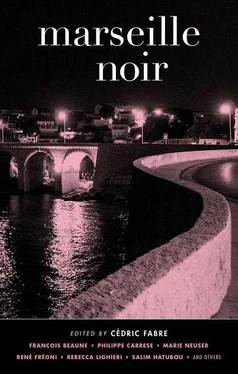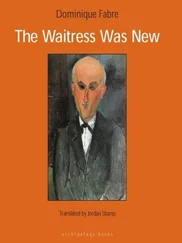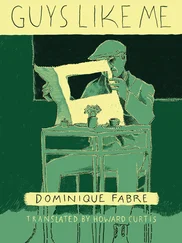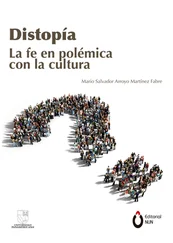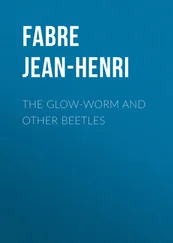Cédric Fabre - Marseille Noir
Здесь есть возможность читать онлайн «Cédric Fabre - Marseille Noir» весь текст электронной книги совершенно бесплатно (целиком полную версию без сокращений). В некоторых случаях можно слушать аудио, скачать через торрент в формате fb2 и присутствует краткое содержание. Год выпуска: 2015, Издательство: akashic books, Жанр: Крутой детектив, на английском языке. Описание произведения, (предисловие) а так же отзывы посетителей доступны на портале библиотеки ЛибКат.
- Название:Marseille Noir
- Автор:
- Издательство:akashic books
- Жанр:
- Год:2015
- ISBN:нет данных
- Рейтинг книги:5 / 5. Голосов: 1
-
Избранное:Добавить в избранное
- Отзывы:
-
Ваша оценка:
- 100
- 1
- 2
- 3
- 4
- 5
Marseille Noir: краткое содержание, описание и аннотация
Предлагаем к чтению аннотацию, описание, краткое содержание или предисловие (зависит от того, что написал сам автор книги «Marseille Noir»). Если вы не нашли необходимую информацию о книге — напишите в комментариях, мы постараемся отыскать её.
Marseille Noir — читать онлайн бесплатно полную книгу (весь текст) целиком
Ниже представлен текст книги, разбитый по страницам. Система сохранения места последней прочитанной страницы, позволяет с удобством читать онлайн бесплатно книгу «Marseille Noir», без необходимости каждый раз заново искать на чём Вы остановились. Поставьте закладку, и сможете в любой момент перейти на страницу, на которой закончили чтение.
Интервал:
Закладка:
“She’s here. She’s the one who puts on those screenings.” She pointed to the long curtain hanging behind the stage. Three different films were superimposed on it and seemed to melt into each other. A documentary about animals, a Disney movie, and an X-rated film. “Great summary of the history of the world, right?”
“Phocéa — do you know her?”
“We just keep the myth going: she’s supposedly a former artivist who put subversive messages into commercials. I’m not even sure she actually has a message to communicate — she’s having fun, that’s all. Nothing’s more exhilarating than belonging to the shadows while you play with the light, don’t you think?”
“Exhilarating, like you say.”
Each portion of the walls and ceiling was now covered with fragments of moving images. Several beams of light were going through the big hall; you could see dust and curling smoke dancing in them. I could make out boats — fishing boats — on the roofs of apartment buildings, fish thrashing around in a net on a bed where a couple was making love, as if they, too, had been caught in the mesh; pictures of the Nazi destruction of the “reserved quarter” of Marseille in 1943. Another film was projected on the dancing crowd. Faces were deformed and the floor seemed to move. It looked to me like images of a violent storm at sea.
On the curtain you could now see a film showing Zinedine Zidane and Eric Cantona. Without the sound. The two soccer players were speaking alternately, side by side, pointing fingers at the camera. On stage, the group had launched into an instrumental piece. It was a psychedelic version of an Olympique de Marseille anthem. The people stopped dancing, fascinated by the film. My employers had told me: “Soccer. In this city, soccer is the key to everything. Find the film.”
The two soccer stars seemed to be talking very seriously, almost vehemently. Then they stopped talking and pointed their fingers again, perhaps at the spectators. Their lips still moved, synchronized. They were probably saying the same thing. They raised their fists in the air and froze. Fade-out. Sequences from films of demonstrations followed the clip.
Zidane and Cantona. Together. The two most popular Marseille players, although Zidane had never been with the Olympique de Marseille and the latter had hung up his uniform in a fit of anger.
They had disappeared from the media over the past few days. In fact they had disappeared altogether, according to rumors; their families and friends allegedly hadn’t heard from them.
“Not such a great duet, right?” the sucker said. “Apparently they like it. ”
The crowd had launched into a furious pogo dance. The group had come up with their own wild version of Alibert’s old Marseille standard “Un petit cabanon,” complete with chorus and distorted lyrics.
“Wait for me here.”
I walked toward the stairs that led to the upper mezzanine where a beam of light seemed to have its source. I climbed the stairs two by two. In the middle of the platform, a few punks who could hardly stand were hanging out around a bar. In one corner, a kind of booth made of hanging black cloths: the projector. As I was moving toward it, one of the punks bumped into me; I was pulled into a corner and suddenly there she was in front of me in a Medusa wig with latex octopus tentacles dancing on her shoulders.
“Phocéa.”
“You were looking for me, right?”
“The film. what’s so special about it?”
“They sent you to get it back, is that it?”
“You stole it from them?”
“From the ones who made it, yes. But it doesn’t belong to your employers, who would like to steal it from me. What will be, will be, with or without the film. Two soccer stars speaking subversively enough to unleash total mayhem. ”
“What are they saying?”
“They’re icons and they’re speaking with one voice. They could say anything at all and it would be gospel.”
“Are there any copies?”
“No. The film was shot on video and the only existing tape is the one I have. Here, have a drink, you look pale and it’s not just because of the purple lighting.”
I took the glass she held out to me and emptied it in one gulp. A spritzer. I made a face at the bitter taste.
“I’m really sorry but I have to get that film back. ”
I headed toward the improvised projection booth but she blocked my way. I took hold of her forearm to move her away but she freed herself with a quick, supple movement, grabbed my wrist, and twisted it until she could read my astonishment in my eyes. Then she broke her hold.
“Relax. You’ve got nothing to fear here, we’re not downtown.”
Downtown. The expression brought a smile to my face.
“Since this morning, I’ve been wondering whether I should give the film to your employers — well, to you actually — or destroy it.”
Shouts of hate and insults reached us from below. I leaned over the railing. A fight had broken out in front of the windows of their goddamn colonial exhibition. It was bound to happen. The rock group had left. A deejay was wriggling around in front of the turntables. A hammering of industrial sounds. The labor unions, not to mention Isaac Asimov, had warned us that one day robots would replace humans — and now machines had already taken control of music.
When I turned around, Phocéa had disappeared. I felt like my brain was spinning around on itself. Down below, people were whistling to me. Around me, guys were patting me on the back, as if to congratulate me. On the curtain I saw a black-and-white film in sped-up motion. It was a close-up of a face. It was happening right here, perhaps at this very moment. That face was mine.
I heard a laugh behind me. Phocéa.
My legs suddenly gave way; I was held up by the armpits and my eyes blurred over. The last image I saw was the wheat-sucker walking in front of me, pushing aside the crowd to make way for the men who were carrying me. The ocean swell. it had caught up with me. Then everything went dark and silent as that fucking sea.
When I came to, the first thing I noticed was that I was drenched in sweat. I looked around for Phocéa; there was only the wheat-sucker wrapped in a pagne, asleep, with a hand on my belly. We were lying on an old mattress in a container. I shook her and she lurched back before drawing me to her.
“Where’s Phocéa?” I asked.
She gave me a sad smile. “You in love with her? What were you thinking? They brought you here, so I tucked you in and watched over you. You might thank me.”
“By the way, don’t you have a first name?”
“Aurore. Thanks for finally striking up a conversation with me.”
“Did we sleep together?”
“Not yet, no. You weren’t in good shape last night.”
“There was a pill in the drink Phocéa gave me. I never could stand those things.”
I got up and pushed the heavy door open. The sun was hardly up, but it was already stiflingly hot. The mistral was blowing, making the cables and container doors clack loudly. Bare-chested kids were coming and going between the alleys, carrying boxes of fruit. Gypsy women were pushing children of six or seven in strollers, asking for change from the old men seated around a folding table drinking coffee; the gypsies took their insults for a while without flinching, then went digging through the heaps of garbage that filled the open trenches in the street. On the other side of the road there was the daily round of teenage girls with empty eyes coming out of the cathedral, candles stashed in their pockets — pockets big enough for the girls themselves to disappear in, bury themselves inside, erase themselves from the surface of the earth. I had a headache; my thoughts were confused and sounds felt as if they were amplified.
Читать дальшеИнтервал:
Закладка:
Похожие книги на «Marseille Noir»
Представляем Вашему вниманию похожие книги на «Marseille Noir» списком для выбора. Мы отобрали схожую по названию и смыслу литературу в надежде предоставить читателям больше вариантов отыскать новые, интересные, ещё непрочитанные произведения.
Обсуждение, отзывы о книге «Marseille Noir» и просто собственные мнения читателей. Оставьте ваши комментарии, напишите, что Вы думаете о произведении, его смысле или главных героях. Укажите что конкретно понравилось, а что нет, и почему Вы так считаете.
